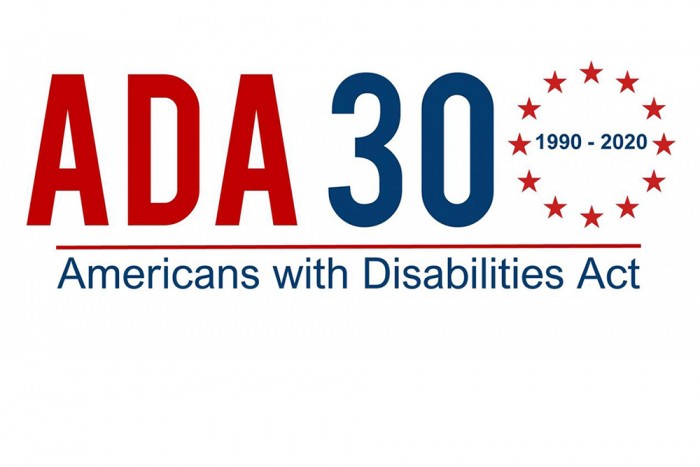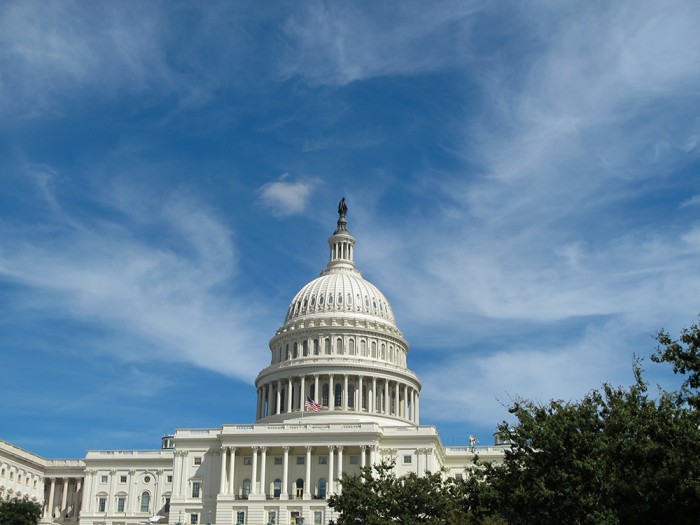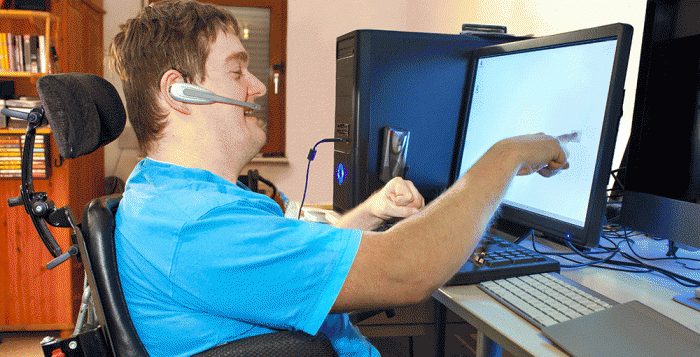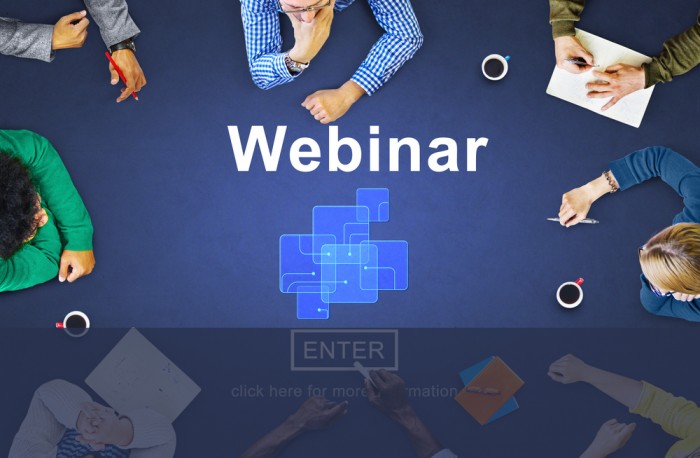PATF/Disability PRIDE Virtual PA Celebration
On July 26, 1990, President George H.W. Bush signed into law the Americans with Disabilities Act (ADA) to ensure the civil rights of people with disabilities. This legislation established a clear and comprehensive national mandate for the elimination of discrimination against individuals with disabilities. On July 26, Pennsylvania Assistive Technology Foundation (PATF) will join in the celebration of the 30th anniversary of the signing of this landmark legislation.
The ADA has expanded opportunities for Americans with disabilities by reducing barriers and changing perceptions, and increasing full participation in community life. However, there is still work to be done.
We believe that full inclusion and empowerment of people with disabilities must also involve financial empowerment. In our view, the Achieving a Better Life Experience (ABLE) Act passed in 2014 is one of the most exciting and empowering pieces of legislation since the ADA.
On this 30th anniversary of the ADA, we at PATF pledge to do our part by furthering financial empowerment for people with disabilities through our programs and through our advocacy.
* * * *
In case you haven’t heard, in honor of the ADA anniversary, Disability PRIDE Virtual PA is hosting a month-long celebration with lots of good content. PATF was thrilled to present on three topics that are important to us all:
- Funding Solutions for Assistive Technology – this recording should be available on Disability PRIDE’s YouTube channel soon
- Smart Homes Made Simple – Facebook live recording
- Overview of PA ABLE Savings Program – Facebook live recording
Trump Administration Renews Public Health Emergency Through Late October
The Trump administration has renewed the public health emergency for the coronavirus, ensuring that critical resources to fight the pandemic can continue while much of the country battles rising caseloads.
The news will come as a relief to health care groups who worried that President Donald Trump would let the emergency declaration lapse when it was set to expire July 25, despite previous assurances from top administration officials it would be renewed.
ODP Shares Medicaid and CHIP Distribution Update and ODP Provider List
In June, Health and Human Services (HHS) announced the opening of the application period and plans to distribute approximately $15 billion to eligible providers that participate in state Medicaid and CHIP programs who had not yet received a payment from the $50 billion General Distribution. Since the announcement on June 9, HHS has hosted a number of webinars targeted at providers and provider organizations to answer questions and assist those eligible through the application process. A fact sheet – PDF explaining the application process has also been created to address frequently asked questions. HHS is continuing to work with provider organizations, congressional, state, and local leaders to get the word out about this program. To ensure eligible Medicaid and CHIP providers, including dentists, have the opportunity to apply for a funding distribution, the deadline to apply has been extended to August 3, 2020.
In order to assist ODP providers with determining eligibility, here is the list of ODP providers given to HHS. Providers are encouraged to apply for this federal funding if eligible.
- Program Overview:
The bipartisan Coronavirus Aid, Relief, and Economic Security (CARES) Act and the Paycheck Protection Program and Health Care Enhancement Act provide $175 billion in relief funds to hospitals and other health care providers, including those on the front lines of the coronavirus response. A portion of these funds, under the Medicaid and Children’s Health Insurance Program (CHIP) Provider Distribution, provide help for providers and clinicians who treat our most vulnerable populations, including low-income and minority patients. This is allocated for eligible providers that participate in state Medicaid and CHIP Programs and that did not receive a payment from the Provider Relief Fund General Allocation. The payment to each provider will be approximately 2 percent of reported gross revenue from patient care.
- Fact Sheet
The Health Resources & Services Administration (HRSA) released a Fact Sheet for Medicaid and CHIP Providers that is now available on the Provider Relief Fund website.
- Recorded Webcast
A recording of the June 25 webcast is now available on this web page.
- Frequently Asked Questions (FAQs)
In order to better address your most important concerns, HRSA has updated their FAQs to address common questions, including those submitted during the previous webcasts. The FAQs include expanded information on eligibility, application, payment process, and more.
- Application Instructions
Medicaid and CHIP Provider Distribution Instructions and the Medicaid and CHIP Provider Distribution Application Form are also available here. HRSA recommends downloading and reviewing these documents to help you complete the process through the Enhanced Provider Relief Fund Payment Portal.
- Additional Information
For additional information, please call the Provider Support Line at 866-569-3522; for TTY, dial 711. Hours of operation are 7 am to 10 pm Central Time, Monday through Friday. Service staff members are available to provide real-time technical assistance, as well as service and payment support.
HHS Webinar: Getting Started with the Provider Relief Fund for Medicaid, CHIP and Dental Providers
The US Department of Health and Human Services (HHS), through the Provider Relief Fund (PRF), is distributing $15 billion to eligible Medicaid, CHIP, and dental providers. If you are a provider who is interested in learning about the application process for the PRF, please register and join the webcast on July 27. Please feel free to share the webcast information with other providers that would be interested in participating as well.
Presenting: Getting started with the Provider Relief Fund for Medicaid, CHIP, and dental providers
Date: Monday, July 27, 2020
Time: 3:00 pm – 4:00 pm ET
Please pre-register to reserve a spot. This event will be delivered via webcast, no dial-in required. Presentation materials will not be distributed. To stay updated on the latest information, visit this web page.
DHS Publishes FAQs for CARES Act Funding
Gateway Health Virtual Panel Discussion: Effect of COVID-19 on Vulnerable Communities
From RCPA member Gateway Health:
Dear Community Partner,
At Gateway Health, we strive to care for the whole person in all communities where the need is greatest. As part of our journey to deliver whole person care, we are now hosting a series of virtual panel discussions for our members and community partners. Given the ongoing challenges associated with hosting in-person and on-site events, we are using these virtual sessions to help us reconnect with the communities we serve.
We hope that you will consider joining us for our first event which will focus on “The Effect of COVID-19 on Vulnerable Communities.”
Date: Thursday, July 30
Time: 11:00 am – 12:00 pm
Click here to register
As we adjust to new virtual formats as a way to engage directly with the community, our efforts can only have a meaningful impact with the full support of outstanding community organizations like yours. We respectfully ask that you please consider sharing this information on your website, social media platforms and with your network. Your assistance with promoting events like this is truly appreciated. Additionally, if there are topics that would be of interest to you and those your serve or if you would like to suggest a subject matter expert, please let us know. Your input is extremely valuable.
Thank you for your continued support of Gateway Health and the communities we serve! See flyer for details.
Dept of Health Builds Contact Tracing Resources to Support Increases of COVID-19 Cases
Senator Casey’s Virtual Disability Employment Summit Friday, July 24
You are invited to attend Senator Casey’s Virtual Disability Employment Summit on Friday, July 24 from 10:30 am to 11:45 am. The Summit will be broadcast live starting at 10:30 am. You can join the Summit here.
The Summit will examine the impact of the novel Coronavirus (COVID-19) health crisis on disability employment, as well as discuss strategies to improve the disability employment rate and ensure that people with disabilities are able to return to work.
Individuals can register for the Summit by emailing your name, organization, and zip code. While registration is not required, by doing so, you will receive an email ahead of the Summit with the agenda and additional resources. There is no cost to attend this Summit.
Additional accessibility information will be released closer to the event. The Summit is open to the general public, so please consider sharing this invitation with others who may be interested.
Call on Regional Response Health Collaborative Program Planned for July 24
The Department of Human Services (DHS) and Department of Health (DOH), in coordination with the Pennsylvania Emergency Management Agency (PEMA) and the Centers for Disease Control and Prevention (CDC), have developed the Regional Response Health Collaboration Program (RRHCP). This program is designed to directly support COVID-19 readiness and response in long-term residential care facilities, including long-term care nursing facilities, personal care homes, and assisted living residences. The program also provides assistance to other DHS-licensed facilities, Adult Living Centers and State Veterans Homes. In addition, the program was developed to improve infection prevention and facilitate continuity of care and other services provided by long-term care facilities in a manner that mitigates risk of spread of COVID-19 to staff and residents.
The RRHCP is a collaboration between DHS and nine regional health collaboratives consisting of health care systems and academic medical centers. The RRHCP is divided into six regions, with a health collaborative responsible for all or a portion of the long-term care facility census in each region which includes:
- Southeast Region:
- Thomas Jefferson University in partnership with Mainline Health and Lehigh Valley Health Network
- University of Pennsylvania in partnership with Temple University Hospital, Inc.
- Northeast Region:
- Geisinger Clinic
- Lehigh Valley Hospital, Inc.
- Southcentral Region:
- The Pennsylvania State University
- Northcentral Region:
- Geisinger Clinic
- Southwest Region:
- UPMC Community Provider Services in partnership with Allegheny Health Network, the Jewish Healthcare Foundation, and the Hospital Council of Western Pennsylvania
- Northwest Region:
- LECOM Health
- UPMC Community Provider Services in partnership with Allegheny Health Network, the Jewish Healthcare Foundation, and the Hospital Council of Western Pennsylvania
The RRHCP will provide operational and administrative support to protect residents in long-term care facilities from COVID-19. It will help facilities implement best practices in infection control, implement contact tracing programs in facilities, support clinical care through on-site and telemedicine services, provide remote monitoring and consultation with physicians, and enhance testing capability for both individuals in care and staff at facilities.
The RRHCP will also assist in identifying alternate care arrangements for hospitalized COVID-19 patients until they are considered no longer infectious and can return to their long-term care residential facilities. Services and assistance offered by the RRHCP include, but are not limited to:
- Establishing a call center with 24/7 access for providers to access clinical consultation and technical assistance;
- Assisting with universal testing;
- Providing expertise in infection control;
- Deploying rapid response teams in case of emergency in conjunction with DOH, DHS and PEMA;
- Assessing the facility’s capability and capacity to prevent and to respond to a COVID-19 outbreak, including review of policies and procedures to prevent introduction of COVID-19 into the facility, fundamental infection control practices, and its readiness to respond to an outbreak of COVID-19;
- Assisting facilities with ensuring hazard response plans are in place;
- Reviewing the process for behavioral health assessments;
- Providing emergency preparedness for personal protective equipment assessment and coordination;
- Establishing a statewide educational support resource for providers to have access to state and national resources;
- Assisting providers with staff augmentation when needed;
- Working with DOH and DHS to conduct contact tracing;
- Assisting providers in developing and implementing plans for alternate care settings for residents if outbreaks of COVID-19 occur at their facility; and
- Providing software and technical support to facilities to support two-way communication between residents and their families.
The RRHCP is based on the Educational Support and Clinical Coaching Program (ESCCP), a learning network that provided technical assistance and educational support to long-term care facilities in light of the current pandemic.
An introductory webinar has been scheduled for Friday, July 24, 2020 from 9:00 am – 10:00 am. The webinar, “Support for Long-Term Care Nursing Homes, Personal Care and Assisted Living Facilities, is open to all provider types and all members are encouraged to participate to learn more about this program. The webinar information is provided below:
Login: Webex Link
Password: DHS2020
Call-in: 1-844-621-3956
Event Number and Access Code: 145 274 9024
Please contact this email for DOH questions or use this email for DHS questions.
















